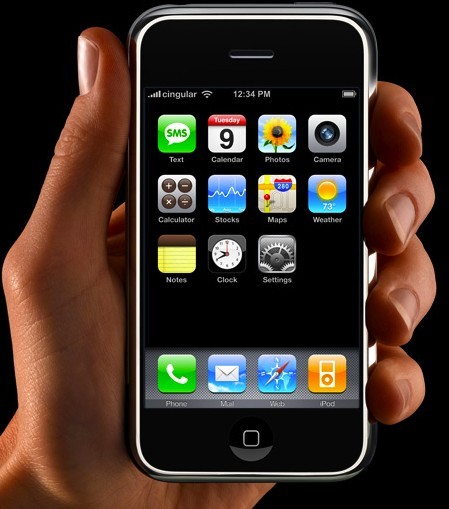
I always had a suspicion coming from personal experience: most of Mac users (and, more generally, Apple product users) by choice are liberals — at least in the US. When I write “by choice”, I mean: when they had an educated choice between a PC and a Mac — not when they had to use a Mac for professional reasons (being in graphic design, for example) or because they were computer-illiterate, and a Mac seemed easier to use.
Now I finally understood why. American liberals are emotional thinkers and wannabe socialists. To them, “looks/feels better” is equivalent to “better”, and they love the idea of a central controlling agency imposing this “better” on everyone. This is what liberal models of government and economy are all about, and this is what Apple is all about.
The story of iPhone, for example, is a classic story of socialism: central control introduces something that looks shiny and pretty (and has crappy inner functionality; its usefulness is inversely proportional to its shininess), something that has “all-in-one” principle; something whose particular use is forced upon the customers (you are limited to the companies, with which iPhone will work; you’re not allowed to download custom-made software — i.e., typical socialism), and all this centralized regulation results in a “black market” attempting to go around the regulations (the great number of people trying to “unlock” the iPhones — for which they are punished by Apple — to which the people respond by designing ways to overcome the punishment — and so on).
Every time you update an OS on a Mac, you need to do a complete revolution: by a new computer, i.e., change all of hardware at once. If you want to install Vista on an older computer, you have a choice about which hardware to upgrade: usually, the memory and maybe the video-card (although, not necessarily). Same when you want a brand-new computer: you have a choice of buying a PC from some company like Dell (or HP... or Asus... or many other companies, competing with each other) or building it yourself after buying parts. You can custom-build Macs too. In theory. It’s called “Hackintosh” — i.e., hacking the system by going around the regulations again.
It is always funny when people criticize Vista for not working on older systems. Did you try to install Leopard on an older Mac? This reminds me of those Russians that argue that they want to have democracy and capitalism but preserve “the authentic Russian way” — which means, apparently, having a mentality of tsarist and Soviet Russia (ruled by a despot; nobody takes personal responsibility for anything). Then they complain that they don’t work together: well yes, you need to update the hardware before you install the software that allows for greater functionality. The question is: will you have a choice on how to update it?
By the way, the decision to use Intel processors on new Macs is interesting: it reminds me of how Chavez introduces socialism in his country.
Finally, the propaganda campaign by Apple against Microsoft reminds me of Soviet propaganda against the West. “It works just as well; you can do everything here you can do there, and it looks shinier. And we will provide everything you need for you without burdening you with responsibility of making a choice. What? You can’t play games? You can’t use custom-made solutions? What do you need that for? More work, less play!”
How did this realization come about? Today I was re-reading Douglas Adams: an atheist, an intellectual who likes to talk and write about things outside of his area of expertise, and a Mac user — in other words, a liberal. In his essay “Frank the Vandal” (published in his posthumous book,
Salmon of Doubt), he writes: “The Mac started out as a wonderfully simple and elegant idea (give them so little memory they won’t be able to do anything anyway) [...]”. In a different essay he writes that in his opinion, reducing possibility of choice is better: e.g., producing “snap-shot” cameras (called “soap-boxes” by Russians) that lack zoom and thus don’t allow people to take bad photos. In other words, let’s treat people as idiots and give as little control as possible, regulating their behavior instead — what socialism is all about.
* * *
On a separate note, the conversation between somebody who switched to a Mac from PC and a traditional PC user reminds me of a conversation between a Jew who turned
(r”l) to
Christianity and an Orthodox Jew:
— Why did you switch?
— For years I knew there was something wrong with it. Now, when I switched, I realized: this is what I was looking for to begin with and stuck with the old thing only because it was forced on me by tradition when I was younger.
— What was wrong with it?
— For starters, too many moving parts. The new thing is much easier to use, and it looks more shiny.
— Those parts serve a purpose. They are put there for a reason by the designer. Among other things, they give you flexibility, allowing you to use the system in all situations.
— Yeah, but it took too much energy to figure out how to use them.
— So, let’s see: you switched because you never took the time to read the manual and understand how to use the system properly?

